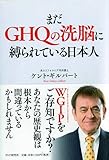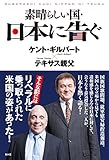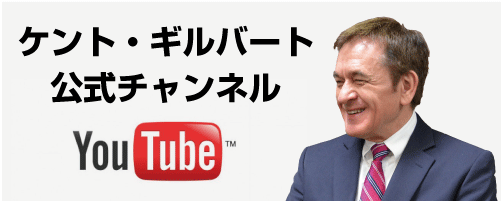Akira Kawanobe has been kind enough to translate my article in the monthly opinion magazine SEIRON July 2015 issue, which is on sale now. It is not available online, but the pre-edited Japanese text is available on my pay mail magazine (see below).
- 月刊正論2015年7月号/日本工業新聞社

- ¥780
- Amazon.co.jp
現在発売中の「正論2015年7月号」に掲載されている私の記事を、川野辺章さんが英訳してくれましたので、ここで紹介します。なお、原文の日本語をオンライン上で無料で読むことはできませんが、私の有料メルマガには最終編集前の元原稿を載せています。
ご興味のある方は、以下からどうぞ。登録月(1か月分)は無料です。
メルマガ登録ページ:http://www.mag2.com/m/0001655307.html
WGIP: Root Cause for the So-called “Conscience” of an Arrogant Media and for China and Korea Posing As Wartime Victors
Why a 70-year-old GHQ scheme cannot be wiped out to this day . . .
Countering China and Korea who, as beneficiaries of the brainwashing, act as if they were wartime victors.
I read with deep interest the article by Mr. Michio Sekino, a researcher on modern and contemporary history, published in the May 2015 issue of “SEIRON” and titled “WGIP: Documents Found about Brainwashing Scheme of U.S. Occupation Forces.” I immediately bought and read his book “Brainwashing Scheme WGIP Which Warped the Japanese: The Psychological Tactics of the Occupation Forces Which Continue to This Day” (Jiyusha Booklet). I realized for the first time just how far reaching and strong the impact of the WGIP (War Guilt Information Program) conducted by GHQ was.
The U.S. occupation of Japan lasted only seven years. By entering into the San Francisco Peace Treaty, Japan regained its independence and sovereignty, at least in form. However even now, 70 years after the end of the war, mind control of the Japanese is virtually unbroken. It has a harmful effect on various aspects of social life.
I have lived in Japan for about 40 years. This country is easy and comfortable to live in, and the longer I live here the more I envy the Japanese people. I think how lucky the Japanese are to have been born in Japan. Tokyo is the Number One city in the world. In food, art, culture, and public safety, Tokyo is best, and above all else, Tokyo is very clean. And, the people who live in Japan are wonderful. An overwhelming majority of them are polite, honest, hardworking, kind, and considerate, and of all the developed countries, Japan is the only one full of people whom you can rely on even though you may have met them only for the first time.
At the same time, I think the Japanese are also the most unlucky people on earth. That is because during the 70 years since losing World War II, they have had a sense of guilt about feeling patriotism. They vaguely see the past of Japan as an evil history, and without any particular grounds for doing so, they feel that “they must be regretful and apologize” and that “apology is most important.” They have a sense that they must make amends, they are criticized at home and overseas about how they perceive the war, and the lofty pride and spirit the Japanese had cherished has been severely distorted.
It goes without saying that these feelings originated from the WGIP. I must add that the postwar politicians, educators, and mass media also should bear heavy blame. They took no responsibility for the “psychological enslavement” policy of the U.S., and even after the occupation ended, they strongly pushed forward with the same policies, leading to the current situation.
Isn’t It Exactly the Same Now?
In Sekino’s book, he outlines the 30 categories of restrictions listed in the “Regulations to Be Applied to Newspapers in Japan” (commonly referred to as the “Press Code”) issued in September 1945 shortly after the end of the war. I was startled to see these. Take a look at them in the order in which they are listed.
① Criticism of the SCAP (Supreme Commander of the Allied Powers or GHQ);
② Criticism of the International Military Tribunal for the Far East (IMTFE);
③ Criticism of the drafting by GHQ of the Constitution of Japan by GHQ;
④ Reference to the censorship system;
⑤ Criticism of the United States of America;
⑥ Criticism of Russia (the Soviet Union);
⑦ Criticism of Great Britain;
⑧ Criticism of the Korean people;
⑨ Criticism of China;
⑩ Criticism of other Allied Nations;
⑪ Criticism of the Allied Nations in general (even if a particular country is not specified);
⑫ Criticism of the handling of Japanese in Manchuria;
⑬ Criticism of the prewar policies of the Allied Nations;
⑭ Reference to a Third World War;
⑮ Reference to the Cold War;
⑯ Propaganda advocating war;
⑰ Propaganda concerning Japan as a divine country;
⑱ Propaganda concerning militarism;
⑲ Propaganda concerning nationalism;
⑳ Propaganda concerning the Greater East Asia Co-prosperity Sphere;
㉑ Other propaganda;
㉒ Justification and support of war criminals;
㉓ Relations between occupation military forces and Japanese women;
㉔ Black market conditions;
㉕ Criticism of the occupation forces;
㉖ Exaggerations regarding hunger;
㉗ Incitement of violence or unrest;
㉘ False reporting;
㉙ Inappropriate reference to the GHQ and/or local military governments;
㉚ Public disclosure of classified reports.
This is the list of the topics which the Japanese press was ordered not to cover at the time. In implementing the WGIP, GHQ remained in the background and used the Japanese press. When I look at this list, it makes me want to say “Nothing has changed!” I was surprised that the mentality of the Japanese press is still precisely the same.
The other day Prime Minister Abe addressed the U.S. Congress. His was a meaningful message positioning the U.S.-Japan relationship as “an alliance of hope,” but the concern of the Japanese media focused exclusively on whether Japan would reflect on [express regret for] the Greater East Asian War and whether clear words of apology would be included. The majority of the reporting was based on the premise that the degree of Japanese remorse is at issue, and that it would be proper to issue a clear apology.
The situation was the same a decade ago when former Prime Minister Yoshiro Mori described Japan as a “country of gods.” The media had a field day, but I cannot for the life of me figure out what was wrong with that statement. The press code prohibits characterization of Japan as a divine country. I guess the problem is that this statement directly violated that provision. The thought seems to be that it is absolutely prohibited to praise Japan, much less to make the outrageous statement that it is a divine country. One must conclude that the mentality of the press is to compliantly submit to the brainwashing and orders of GHQ.
Promotion of nationalism was also banned. Even now many educators take a cynical attitude toward the national flag and national anthem. Japanese media takes the attitude that nurturing a sense of patriotism will directly lead to militaristic ideology. They seriously believe that it is correct to adopt the posture that “we cannot touch on the importance of patriotism” or “no, we must not touch on it.”
Discussion of the Greater East Asia Co-prosperity Sphere was banned. Japanese were forced to abandon the formal name of the Greater East Asian War and call it the Pacific War. Today schools and the media refer to the war as “the Pacific War” as a matter of course. They don’t think anything of it because they do not know anything about the background.
However, this was the name given by the U.S. for the war. The Japanese forebearers did not fight the Pacific War. They fought the Greater East Asian War. Even now, if someone uses the original name “the Greater East Asian War,” that person will be severely criticized by the media who assert that “[using this name] will lead to militarism and cannot be allowed.” Because this name will portray a mistake in a positive light, or will lead to praise [of a mistake], or because they fear criticism, large numbers of people hesitate to use the name Greater East Asian War. They engage in self-censorship.
Involuntary Reactions Permeate the Media
I feel the same about the incident with former TBS Washington Bureau Chief Noriyuki Yamaguchi. He published a scoop in the rival Shukan Bunshun magazine about the fact that the Korean Army ran comfort women brothels in Vietnam during the Vietnam War.
Shortly before Yamaguchi took up his position in the U.S. in the early summer of 2013, a foreign affairs official mentioned to him that he might find documents substantiating the existence of Korean comfort women stations in U.S. government records. Thus began his search of official documents.
In July of 2014, he discovered a letter in which the U.S. military command clearly confirmed the existence of “comfort women stations run by the Korean military exclusively for Korean soldiers.” Thereafter he obtained conclusive testimony from a former U.S. marine leader. He had now nailed down the facts on the comfort women station.
However, Yamaguchi’s reporting was not broadcast on TBS television. He instead revealed the results of his reporting in Shukan Bunshun magazine. That caused a small furor, and TBS slapped him with a 15 day suspension and transferred him [out of the news division] to the sales division for local programs.
Yamaguchi clarified the circumstances of the disciplinary actions taken against him on his Facebook page. “Action was not taken because of the contents of the Bunshun article, but because of internal procedural flaws.” When writing in outside media, the reporter must make an advance written report – not obtain permission – but these procedures were not followed correctly. He explained, “There may be differences of opinion, but the disciplinary measures in this case are not directly linked to TBS’s reporting stance.”
The question of why TBS did not broadcast Yamaguchi’s report remains. Yamaguchi explained “I do not know why TBS did not broadcast the results of my reporting” but “The facts are clear and I took the bold step to publish this because I felt it was news which should be made known to the world.”
In short, restraint is exercised in news reports which are deemed unfavorable to South Korea. This is an involuntary reaction which runs throughout all the media, not just TBS. If this is not a remnant of the WGIP, then what is it? It gave me cause for reflection.
I will cite another example. Prime Minister Shinzo Abe’s home page details the process involved in the drafting and adoption of the Constitution of Japan as follows.
“First, there is a major problem with the process by which the Constitution came about. When Japan was under occupation, GHQ issued an order ‘to produce a draft of a constitution,’ and under Joji Matsumoto, the drafting committee was engaged in preparing a draft constitution. A scoop appeared in the newspaper on February 1, 1946. General MacArthur was infuriated at its contents and, saying ‘We cannot leave this up to the Japanese,’ ordered [Maj. Gen. Courtney] Whitney, head of the Government Section, to have a constitution prepared by GHQ. This is a historical fact. At that time, Whitney ordered his subordinates ‘to finish the draft constitution by February 12th’ and when asked ‘why February 12th,’ replied ‘because Lincoln’s birthday is on February 12th.’ This was later made clear by the testimony of those around him.
“The time limit was set even though there were no constitutional scholars and no specialists in international law on the team. Despite the fact that the date of Lincoln’s birthday had no relationship whatsoever with the drafting of a constitution for Japan, on February 13th the hastily prepared draft was presented, and that became the draft for the Constitution of Japan.”
This is undisputed fact. But when he published this, some Japanese people went into a fit of rage and attacked him fiercely, and Prime Minister Abe is still suffering their criticism. By all rights there should be no problem with detailing the process by which the constitution, the fundamental law of the land, came into being and pointing out any problems with that process. Some opposition diet members express open anger as if to say “You cannot be excused for speaking about that!” judging from their ferocious facial expressions. People who deny and cover up historical facts and exhibit emotional responses only present the sight of a last ditch attempt at useless resistance. In this way, the brainwashing is not only limited to the media but there are also many other people who have been brainwashed by the WGIP (or who want to continue the brainwashing effects of the WGIP).
South Korea, You Are Not a Victor Nation
At the outset, the WGIP was intended to serve the interests of the United States, but it has also had a favorable effect on South Korea, the PRC (People’s Republic of China), and North Korea. North Korea has not been treated as a reliable partner of the international community from the very beginning, so I will leave it out of this discussion, but we cannot overlook the PRC and South Korea. That is because they are conducting persistent lobbying activities in the United Nations and within the United States, targeting Japan with their “Discount Japan” campaign.
Since the end of the war, South Korea has consistently claimed to be a “victor nation.” However, until the end of the Greater East Asian War in 1945, the Korean peninsula was all included in the territory of Japan. Japan never fought a war with Korea. This is a historical fact. The Republic of South Korea was established after Japan’s defeat in the war, so when it did not exist as a nation at the end of war, how can it consider itself a “victor nation?” I have a hard time understanding this. It is unbelievably shameless.
Suppose that some children get together and Team A and Team B play each other in a game of baseball. After Team A wins the game, K, who was on Team B, comes up to the members of Team A and says “I fought and won as a member of Team A from the very beginning.” What South Korea is doing now is the same as this. For Japan or any other advanced nation, it is unthinkable behavior.
A Red Card for the PRC which Poses as a Victor Nation
I feel the same way about the “People’s Republic of China.” They didn’t exist as a nation during World War II either. I feel it is out of place for them to profess themselves to be a “victor nation.”
From start to finish, Japan fought “the Republic of China” under Chiang Kai-shek, or in other words the Chinese Nationalist Party [Kuomintang or KMT], and its military. Japanese casually call the country “China,” but the current government of China should be distinguished such as by calling it the “PRC,” the abbreviation of People’s Republic of China.
It is a fact that the Chinese Communist Party Eighth Route Army under Mao Tse-tung had occasion to fight the Japanese army, but it definitely was not a “war.” They were nothing more than an illegal guerrilla organization.
We can liken this to a boxing match. During an official fight between the Japanese Army and the Chinese Nationalist Army, an unlicensed group of ruffians throws empty cans from outside the ring at the Japanese Army. The Japanese Army thoroughly dominates the match but the Nationalist Army wins by a decision. However, the ruffians then then beat to a pulp the winner, who is completely worn down by the fight, and drive him out.
Later they obtain a license and become the owner of a boxing gym. After securing a certain status on the international stage and a change of ownership, they suddenly start proclaiming “We beat the Japanese in an official match a long time ago” or “We are the champions (victor nation).” This is a rough account of what happened, and the same idea as with Korea.
The only real winner against Japan was the United States. Some say the Allied powers won the war, but the Dutch army, the British army, and the French army were unceremoniously driven out of their Asian colonies. The American forces were driven out of the Philippines, but returned and in an all-out fight with Japan finally achieved victory. Incidentally, the United States committed a number of clear violations of the international law of war in its fight against Japan. Japan was that strong. The U.S. achieved victory in a desperate fight without regard to conventions.
That’s why whenever I see South Korea or the PRC pompously posing as victor nations it makes me want to roar “Who do you think you are?” However, to those Japanese who cannot counter these two countries, I want to say “Show some spinal fortitude!” You don’t need to be bound by some 70-year-old propaganda. No country in the world has offered more apologies to other countries for the war than Japan. This year marks the 70th anniversary of the end of the war. Japan should confidently assert what needs to be said, without bowing to persistent false charges from neighboring countries, so that the diplomatic conditions surrounding Japan and various historical facts can be properly understood. It is my sincere hope that the Japanese message can be effectively communicated to the world.
お陰様で増刷決定!Kindle版6/19配信開始!(¥1,111)
まだGHQの洗脳に縛られている日本人/PHP研究所
発売前予約だけで増刷決定!
素晴らしい国・日本に告ぐ!
(SEIRINDO BOOKS)/青林堂
Amazon.co.jp
7/14(火) テキサス☆ナイト in 大阪講演会:http://texas-night.com/4.html
限定情報満載&初月無料!メルマガ登録:http://www.mag2.com/m/0001655307.html
Official Home Page 公式サイト:http://www.kentgilbert.com/
Official Blog 公式ブログ:http://ameblo.jp/workingkent/
